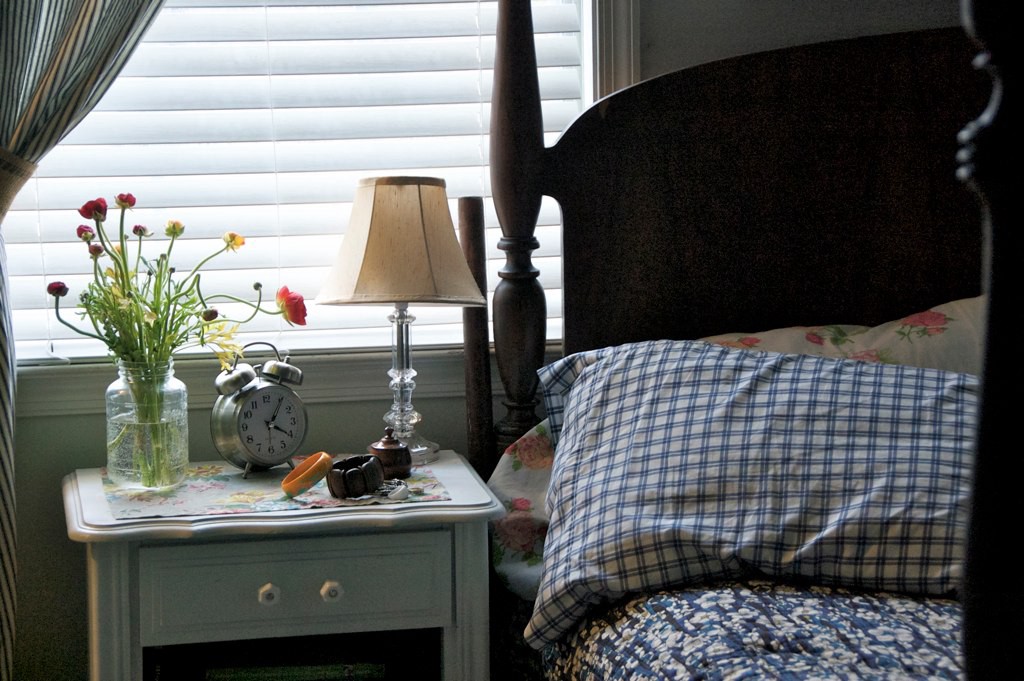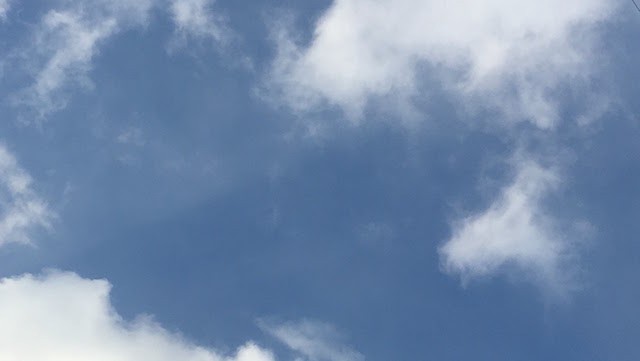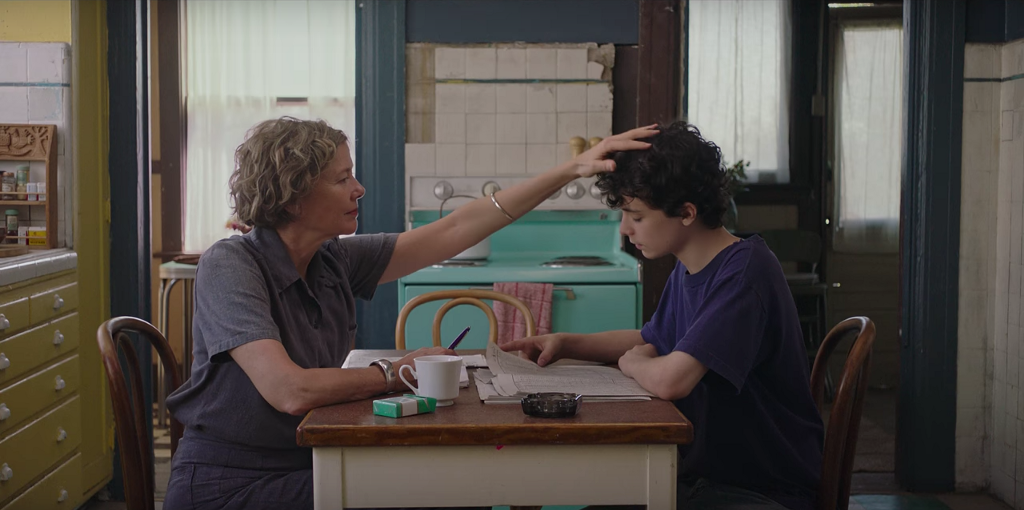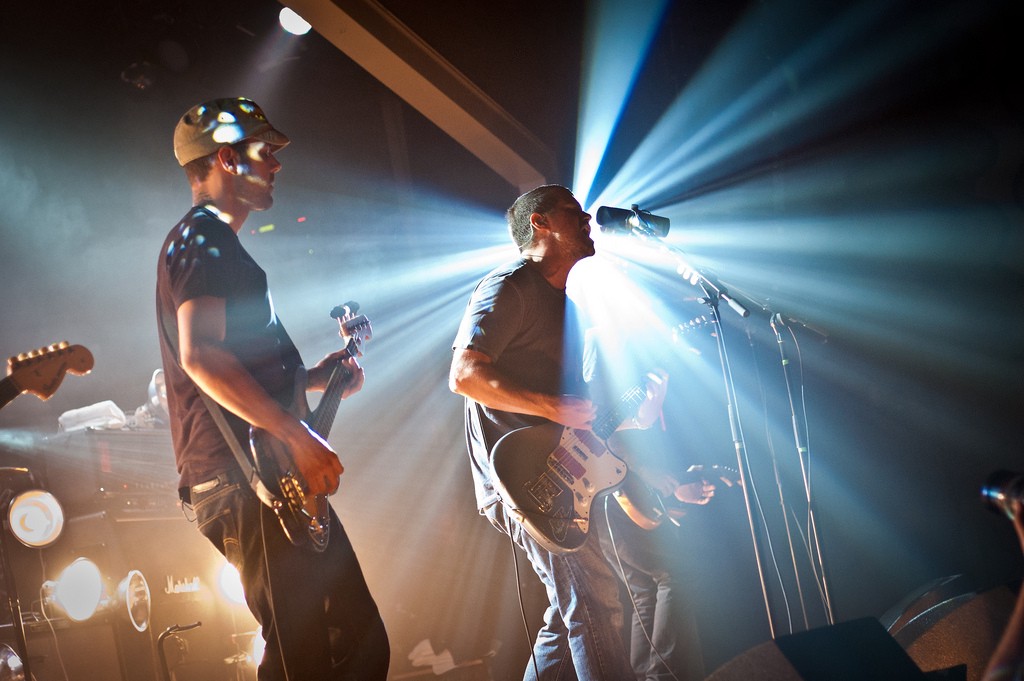Have A Big Spätzle
You deserve a nice, big carb.

You know what a really nice food to eat is? Spätzle. Have you ever just had a big thing of spätzle? You will feel all the better for it. I highly recommend it.
WARNING: I’m sorry, but this is a no-go if you can’t eat gluten, which sucks! You can stop reading this and know that I feel very bad about even recommending it without asking you first if you can even consume spätzle.
What is spätzle, you might be asking? Great question, because it’s not safe to assume that everyone grew up like me, in a Germanic-midwestern household with a strong love of foods that come in yellow. Spätzle is a German egg noodle. Think pasta, but softer. Think gnocchi but eggier. Think quinoa but JK, don’t think about quinoa at all. Look, it’s really just its own kind of food, buy a box, it costs like $3, I don’t know. It translates to “little sparrow,” which is so nice!
Like I said, I grew up in a semi-German household. My dad is German, is what I mean by “semi-.” We had spätzle regularly, and now it’s one of those cupboard staples I keep around as a comfort food. In the winter months especially, it tastes heartier and better than a big pasta does. I mention this is a winter food because spätzle sits heavily in your stomach. For the love of all big carbs, don’t eat spätzle in the summer; you will feel very bad after.
Generally, I love to eat it when I’m stressed and/or very hungry — these two feelings are often together. It reminds me of home in the sense that when I’m done eating it, I can throw my plate in the sink and lie down in bed immediately. It’s a little sweet, too, which is nice and strange and comforting to have in a big carb.
Not dissimilar from a big pasta, however, spätzle can essentially be cooked with whatever you want or have lying around. If the idea of endless possibilities freaks you out, I will tell you how the Hoepfner household has been consuming spätzle for a quarter of a century (at least).
What you need:
A box of spätzle (if you know how to make your own, that’s fine but I don’t)
Two beef sausages or kielbasa
A thing of sauerkraut
Some apple cider vinegar
A small white onion
Salt to taste
You’ll boil a pot of water like you would for pasta and your spätzle will cook in that. I buy the Maggi brand, which says it has to be in the water for twenty minutes or something like that. It doesn’t. Cook yours to a texture and consistency that you like; I think I prefer mine closer to al dente and drain it after about twelve minutes.
Cut up your sausages into maybe half-inch-wide slices or a little bigger Toss those in with the sauerkraut (as much as your body can handle, honestly) and truly just a splash of apple cider vinegar in a pot. You do not need a lot of apple cider vinegar. Have you smelled apple cider vinegar? Like I said, just a splash. All of these ingredients are technically pre-cooked, so you’ll just want to mix them together on a low heat so they can absorb flavors.
In a small pan, caramelize the onion. This is just mixing onion slices and butter, and then cooking until the onion browns and it smells very sweet. How long does caramelization take? I have no idea. I also will just eat white onion cooked in butter plain because I am a psychopath. It’s also worth noting, at this point, that all of the foods you are cooking are going to make your kitchen and/or entire home smell like sauerkraut and onions. If you’re like me, that’s a big “hell yeah,” but this is also one of those meals you might want to open a window after cooking.
Once your onions have caramelized, and your spätzle has puffed up, and your sauerkraut and sausage and vinegar mixture has melded nicely, you can take everything everything off the heat and mix it all together and eat it. Or eat it all separately on the same plate or do whatever you want. I don’t live with you. This is my favorite thing to cook and eat. It tastes like a night inside. It tastes like home. You will have leftovers from this portion size and they’ll smell weird, generally speaking, but it’ll be fine and a heartier lunch than a desk salad will ever be.
Like I said, there are multiple ways to make spätzle. Molly Yeh’s new cookbook suggests making it with bacon and Brussels sprouts, which, like, yes, of course, obviously. I’m serious, though. And you don’t have to make it with meat, either! This works with just sauerkraut and a vegetable or something like that. One time I had a vegetarian roommate who just ate sauerkraut straight from the jar but that’s besides the point. Make a big spätzle. Make it for yourself, make it for friends. The possibilities are endless, and the food is very good.
Fran Hoepfner is a writer living in Chicago.
Why Do Rich Women Keep Telling Me To Sleep?
Sleep is the new luxury many still can’t afford.

In an Op-Ed for the Daily Mail this Sunday, actor and professional weigher-in Gwyneth Paltrow invited readers to embrace the idea of something she calls “clean sleeping.” Like clean eating, clean sleeping purports that we can all greatly improve our health and wellness by being hyper-vigilant about one day-to-day metric. In this case, Paltrow suggests “at least seven or eight hours of good, quality sleep — and ideally even ten” a night as the road to optimal living.
The biggest health trend for 2017? Clean sleeping
She’s not a doctor though, she admits, so she invites a nutritional scientist, a detox expert, and an osteopath to weigh in as well. Everyone seems to be in agreement that sleep is good for your body, and that you’ll most likely notice improvements like glowing skin, decreased appetite, and improved hormone regulation—but somehow nowhere in the article do we address why people aren’t getting enough sleep in the first place. It’s as if all of us are wandering around staying up ’til 2 A.M. and getting wrinkles just because we’re ignorant and watching cartoons, not… say, concerned about keeping our jobs or caring for children.
A summarizing bullet beneath the headline illustrates this pretty well. It proclaims, “She says [sleep] should be your first priority — even before you think about your diet.” Our first priority. Before, “Am I going to pay my rent on time?” or “Is it worth going to the doctor to get this cold checked out?” we should be asking, “Have I gotten my seven to ten hours?”
Of course, in a perfect world, sleep wouldn’t be caught in an either/or dynamic with our other basic needs, but I don’t know that I’ve held a single job that wouldn’t be pissed as hell with me if I replied to an e-mail ten hours after it was sent because “sleep is my first priority right now.” If I walked into a morning meeting late because “I’m really emphasizing sleep as part of my lifestyle,” I don’t think I’d get invited to many more morning meetings, and I doubt I’m alone here. The culture of having a full-time paying job is, “This is a priority for you,” and since it finances the lifestyle that allows you to click on Gwyneth Paltrow Daily Mail links, you don’t really have the luxury of saying, “Hm, but I think it’ll be second to sleep.”
Gwyn’s not alone in this specific tone-deafness: Arianna Huffington, who seems to have dedicated herself full-time to sleep advocacy after stepping down from her Huffington Post role, also promotes an eight-hours-of-sleep-a-night lifestyle. She cites our addiction to devices as a main cause of sleep deprivation, but again doesn’t seem to grasp that it is a privilege to be able to turn off your phone. Would people be looking at their devices so much if they weren’t worried something urgent might get sent their way after-hours? Probably not! Too bad there’s no way of knowing what night will be the night your boss needs you to solve a problem for her.
All of this confusion points to my not being this article’s target audience. In other words: I don’t have the luxury of opting into ten hours of nightly sleep as a lifestyle choice, this must not be for me. But then who is it for? The only answer, as far as I can tell, is women like them—privileged women, white women, women who, perhaps, do not have to report into an office every single day. Perhaps women who have nannies and other caretakers.
Wouldn’t it be cool if they just out and said it instead of grouping us regulars in like this is some lifestyle decision we’re neglecting to make? Wouldn’t a headline calling out business leaders as a group be much more effective and garner a lot less… distaste from your average American? Just saying, “Hey, you need more sleep and so do your employees!” in a headline turns this into an advocacy/HR thing instead of a hobby health nut preaching to the working class from her lifestyle blog. I’d love it if Gwyneth could just call clean sleep what it is—a privilege most people don’t have the power to consider—cause then, yeah, I agree.
The Crush
The Adventures of Liana Finck

Liana Finck is a New Yorker cartoonist and graphic novelist. She posts autobiographical cartoons on Instagram.
Lapcat, "Nebraska (Club Edit)"
Here’s hoping you float through this week.

This is it. This is the week before the holiday, everyone will drift away in varying degrees and days will pass in weird and unpredictable ways. Keep your head down and do what you need to do to get through it, hopefully it won’t be too hard. We can all, Lord knows, use a break.
Anyway, here’s some music that is a little set back and dreamy, much like I hope this week is for you. Enjoy.
New York City, December 15, 2016

★★★★★ More than once in the night the wind slammed against the building hard enough to break into sleep, with a sound like torrential rain. Morning showed up dry as the night had really been, with bright pink light shining on things and a crisp white moon, just off full, standing in the sky. The cold was hard and pure and sensational, something to talk about with marvel. Being indoors with all the day’s requisite layers and outerwear was too much to bear, but it was the indoors that came off the worse for that. The wind could squeeze tears from the eyes, yet it was not dealing out frostbite; in midday it was still possible, on a shortish walk, to hold back the gloves and the hat for when they would truly be needed. That moment came as soon as the sun had lost contact with the streets. A leaf scraped along brickwork like claws running on a hard floor. Strings of lights shone sharply in the clarified night air.
If The Nothing Up There Met The Nothing Down Here
God vs. aliens

If the current state of reality is getting you down — and how could it not be, haven’t you been paying attention? — why not escape for a few minutes into a terrific piece of fantasy writing about what it would mean for religion if we found out aliens existed. How awesome would our world be if that was an actual problem? Oh God, we’re so fucked.
If we made contact with aliens, how would religions react?
Bonus: Have you considered this?
Salvation itself might be exclusively an Earth concept. Theology doesn’t require us to believe that sin affects all intelligent life, everywhere in the Universe. Maybe humans are uniquely bad. Or, to use religious language, maybe Earth is the only place unfortunate enough to have an Adam and Eve. Who is to say our star-siblings are morally compromised and in need of spiritual redemption? Maybe they have attained a more perfect spiritual existence than we have at this point in our development.
Yeah, maybe. Or maybe aliens and religion are both bullshit. Still, it’s something to think about to not think about the other things, which are real and which are actually going to happen. In fact, I’m going to go read this piece again. Save us, star-siblings!
'20th Century Women' Is Lovely And Warm
Maybe you will like it

Remember that 2oth Century Women trailer I enjoyed so much? Well, I got to go to a screening the other night and all of my suspicions were confirmed: it was lovely and warm. In it, the residents of a Southern California boarding house form a mismatched family for a period of time in the late 1970s, all in the name of helping teenage Jamie (Lucas Jade Zumann) grow into a “good man.”
The Trailer For ‘20th Century Women’ Is…Quite Nice
What makes a “good man,” exactly? It turns out everyone has a different answer! And Jamie must navigate his way through a forest of searing hot takes in order to discover what he thinks is best for himself. It’s like a metaphor for tweets and society.
Women is the first film in six years from writer-director Mike Mills, and in a lot of ways it feels like a continuation of an idea he grazed in his last project Beginners*. That movie largely focuses on one man’s relationship with his father (who came out of the closet late in life), but a big part of its warmth and humor comes from the secondary portrait of a mother and son. Knowing her husband is gay despite it being a secret, and resigned to the safe and loving life they have built for themselves, Georgia pours her displaced love into childrearing. In the driver’s seat of her car, she smiles at her kid and says, “Point!” initiating a game where she steers through the Los Angeles streets in accordance with her son’s silent directions. Passing through a room in their house, she splays out a hand like a wizard, and her son crumbles to the floor in mock death—two friends with a bit. In Women we see that kind of relationship take center stage, with another short-haired, pants wearing mid-century mom trying to raise her son to be a type of man she hasn’t met yet.
Because she is a single parent in a time when that’s still uncommon, and because she suspects her one world view will not be impactful enough to inform her son’s entire frame of reference, Dorothea (Annette Bening) recruits a punk rock art freak tenant named Abbie (Greta Gerwig) and Jamie’s cigarette smoking, daughter-of-a-therapist best friend Julie (Elle Fanning) to help guide him through adolescence. With them he sneaks out of town for the first time, goes to grungy basement music venues, and reads about the female orgasm—and Dorothea remains all the while observing from the periphery, struggling with her dueling urges to just tell Jamie how the world works and let him make the decisions necessary to become someone separate from her. At one point, a guy from a punk show spray paints “BLACK FLAG” and “ART FAG” onto the doors of the family car because Jamie listens to the Talking Heads. Later, when her son isn’t home, Dorothea puts on a Black Flag record and then a Talking Heads record for comparison and laughs to herself, “I guess I’m more of an art fag, too.”
The age differences between these characters isn’t a mistake—through Bening, Gerwig, and Fanning we see how, even though each of them is reaching in the same direction (progress! fulfilling themselves!), each of them contains a whorl of different interdependent cultural baggage. No scene holds that tension more deftly than when Abbie mentions her period at the boarding house dinner table. Dorothea is mortified and tries to change the subject, but Julie ends up feeling emboldened and recounts her first sexual experience to the group as the adults shift uncomfortably in their chairs. These adults aren’t suits and squares, they’re hippies a decade out from their heyday—sweet looking men with beards and worn-in jeans, quiet bookish types—who may have wholeheartedly supported women’s lib, but who aren’t quite ready to talk about PMS while enjoying their side salad.
And that’s what 20th Century Women does best: reminds you that you can sand your own bannisters and wear slacks to your full-time job and still not be wholly comfortable with your gender. And, that if you don’t surround yourself with people you trust enough to show your world to you, you’re never gonna grow.
20th Century Women will be in theaters Dec. 25.
_________
*a movie I also loved
Brand New Is The Best Band In The World
 Image: Brady Harvey
Image: Brady Harvey
Brand New is the best band in the world. Their music is imbued with raw emotion and lyrical deftness. They are capable of inescapable hook and delicate melody, but also of brute force and screaming rage. They make elemental rock and roll — guitars, bass, drums, vocals — but layered with texture. They are, categorically speaking, an alternative rock band of predictable sonic range, but their best work, like all good work, is not restricted by genre.
You, of course, do not believe that Brand New is the best band in the world, and you are wrong. This is okay. The exercise of identifying a best band in the world is not about objectively describing the world as it is. It is solely about describing yourself as you are. Your taste will change and your appetite will waver but you will always have an answer to the question of which band is the best in the world. It is a band you will come back to — a band you will defend at length, to significant self-embarrassment, because to hold your band as the best in the world is to fashion yourself as something distinct against the multitude.
Many of the bands that we now associate with the peak of certain genre signifiers — emo, post-hardcore, pop-punk — began in the New York metropolitan area in the late nineties and early aughts. Thursday and My Chemical Romance emerged from northern New Jersey. Coheed and Cambria played early gigs under the name Shabutie in Rockland County, New York. Taking Back Sunday, Glassjaw, and Brand New were all forged in the Platonic American suburbs of Long Island.
Brand New has had four core members since its founding. Jesse Lacey on guitar and lead vocals, Vincent Accardi on guitar, Garrett Tierney on bass, and Brian Lane on the drums. Lacey is handsome, in a bland and unobtrusive way, and plays his role as frontman well — he’s distant and enigmatic onstage, yet eloquent and forthcoming in interviews. During the band’s early years he wore his black hair in a faux-hawk, with the bangs swept up dramatically and a single wave of hair erect in the middle.
Nothing about this is unique. Brand New is, for better and for worse, an archetypal American band: four youngish white guys wearing jeans and making punk-inflected music with their friends in a cul-de-sac. But they’re the best band in the world, even though they’re just like any other band.
![]()
The band played with its contemporaries in Long Island and released its first album, Your Favorite Weapon, in 2001. Guitars crunched and stuttered, and Lacey produced whiny hooks about the grievances of being a jilted lover. It is catchy but not saccharine. The band toured incessantly, on a growing circuit of festivals and multi-headliner cross-country treks while writing the songs that would appear on their sophomore album, Deja Entendu, released in 2003.
“What happened to Brand New?” asked Kelefa Sanneh, reviewing their second album favorably in the New York Times when it was released. “In 2001 the band…released…a sharp but straightforward collection of breakup songs. Now the group has returned with…an extraordinary album full of riddles and rallying cries and contagious choruses,” Sanneh continued, noting not only the sense of musical tension and mood, but also the growing complexity of Lacey’s songwriting. The album has power-chord ear-worms, familiar from the band’s first effort, and it’s also layered with undulating guitar-play, noisy digressions, and even hints of rhythmic funk. To call it emo would unfairly compare it to other, less adventurous, music from the same time period, but it does pierce with that tell-tale angst.
The success of Deja put Brand New in a precarious position. The lead single, “The Quiet Things That No One Ever Knows” received airplay on commercial rock radio, and an accompanying video aired on MTV2 and the Fuse Network. They flirted with mainstream popularity and were courted by major record labels, eventually signing with DreamWorks, which shortly thereafter became Interscope. After another punishing schedule of touring, they quietly recorded their third album, beset with incredibly high expectations.
In early 2006, a series of demos for the new album leaked onto Kazaa, Gnutella, and the torrent sites of the era, exposing the band’s creative process in naked incompletion. Lacey recoiled, the band went silent, and their website was cleaned of all hints at what might come next. By the summer of 2006, they had teased a new album, which they were ostensibly calling Fight Off Your Demons. They played a handful of shows; I attended one at Webster Hall, and watched the band perform a mix of old and new songs to a tangibly ravenous crowd.
Late in the set, during a sort of pre-encore segue, Lacey emerged alone, with an acoustic guitar, to placate the audience with a selection of deep cuts. Hordes of beefy bros overwhelmed the stage with distracting chants for their early favorites, especially “Soco Amaretto Lime,” the closing track off Your Favorite Weapon, a quiet but anthemic exclamation of teenage revelry with an unfortunate chorus that begins “We’re gonna stay eighteen forever / So we can stay like this forever.” Lacey, unprotected on stage, was noticeably uncomfortable, but the bros didn’t seem to care. They continued to holler. Lacey demurred, refusing to play the song, as well as another debut-album standout, “Jude Law And The Semester Abroad.”
In the face of these bros I began to question my own fandom. They were like eighties-movie caricatures of dimwitted jocks, adorned with backwards baseball caps. They broke with the rest of the crowd, who wore the tight jeans and thick-rimmed glasses. The songs they clamored for were, and are, favorites of mine too. I had chosen Brand New to remove myself from the very Abercrombie and Fitch-ness that the bros embodied. Brand New couldn’t be the best band in the world to bros like these, too, or else they couldn’t be the best band in the world for me.
So I rationalized: Lacey had grown up, and was signaling that it was time to put the childish emo away. Deja was a challenging album, capable of a foreboding heaviness, and the demos indicated that the new album would be the same if not more so. The bros weren’t ready for this. They wanted the warm embrace of the old Brand New, the familiar, less distinguished Brand New, while being wary of the new, less forgiving Brand New. They couldn’t think that Brand New was the best band in the world, I consoled myself, because their Brand New was not my Brand New, or even Jesse Lacey’s Brand New, but a Brand New that no longer existed, save for on recordings. I truly believed this distinction set me apart from the bros.![]()
In November of 2006, Brand New finally released their third album, The Devil and God Are Raging Inside Me. It was dark in both lyrical content and sound. Lacey’s vocals were strained, jittery, and several songs included stark jumps from barely audible singing to an unintelligible mess of multi-tracked screaming. It was an album about mental illness, and death, and unsparing loneliness. It threw away any remaining mantle of Next Big Band in favor of something difficult, something that required digging into. I loved it; it confirmed my stance on Brand New’s greatness, and it made me more secure in the contrarian identity I had fashioned. Surely, the show-bros would not enjoy it.
Several of the leaked demos made it onto the final product, though many did not, including some fan favorites. Lacey has expressed regret over these omissions, and it is clear that he overreacted to the leak. If you took the best songs from the finished album, and the best of the demos, and recorded them as a sonic whole, you would have a truly fantastic album, as good as if not better than Deja.
In 2009, they released Daisy, another set of heavy, aggressive songs. But the leaked demos never faded out of earshot. Over the years, they appeared often in live sets and were released in studio-recorded versions as stand-alone singles and b-sides, finally a part of the official canon. In December of 2015, the band released an official version of them, titled simply Leaked Demos 2006, in a limited batch of cassette tapes. A second batch was released in January of 2016, around the ten-year anniversary of the leak.
When the cassettes arrived I saw images of the tapes on social media, proudly displayed by their owners as kitsch. “Look,” they said, in the performative language of social media, “at this reminder of what we were like when we were less mature.” These people had given up Brand New in the intervening ten years, leaving emo to be swept up in the trajectory of American popular music. Now they had returned, too easily. Surely these people could not claim Brand New was the best band in the world. Had they even listened to Daisy?
Once again I engaged in the requisite mental gymnastics: my fandom was pure, longstanding, not dusted off for a quick dopamine hit of likes and shares. My belief was evidence of a loyalty, an intellectual purity — a belief in the primacy and longevity of art above all else. Brand New was not something I took lightly, not something I took pleasure in only when it became cool to embrace one’s adolescence in the face of one’s adulthood.
You’ve probably called bullshit on all this, and you are right. I have been using Brand New as a petty attempt to uphold my individuality against the masses, which of course never existed. Maybe you’ve gone a step further — I am in fact worse than the other fans I have belittled. This too, is right. Their fandom is freer, devoid of the identity baggage inherent in my conception of best band in the world. By placing so much importance in Brand New — by Talmudically studying their growth and development as a band, and scrutinizing the motivations of other fans — I’ve become lost in a solipsistic self-examination, instead of celebrating the music.
I’m amenable to this argument. It is fundamentally correct. But there is something to be said for this sort of dickishness. It’s a dickishness we are all guilty of. Maybe for you it is a movie, or a book, or a coffee blend, or a programming language, or an opera, or digital-media outlet, or a sports franchise. It is something you devour and live with in such an intense way that it becomes impossible to consider the thing outside of yourself. Maybe you have found yourself in arguments over the bestness of this thing, found yourself defending laughable, untenable positions. Your reasons for doing this, like mine, are bad, but fair. What is it that you love so much you turn into an asshole when talking about it? Surely something. To deny it may make you a more agreeable person, more likable at parties, but certainly less yourself. Now why would you do that?
![]()
There are those who think that Modest Mouse is the best band in the world. I know some of them personally, and maybe you do, too. They will insist that The Moon & Antarctica is better than anything released since, from Modest Mouse or any other band. They will scoff at anything released after their breakout album, Good News For People Who Like Bad News; some will even scoff at this record. They look at the “fans” who sing along to “Float On” when it comes on the sound system in a bar and rehash their own internal arguments for why they are better, why they are right, why they are the only true carriers of the best-band-in-the-world flame. This is no different than what I do when it comes to Brand New.
I saw Brand New for a second time in the summer of 2014, on the grounds of a brewery in upstate New York, at a combined show with Modest Mouse. Both bands’ popular and commercial peaks came around 2004, emerging from a genre holding-pen into the broader zeitgeist, and both remain today, stronger than ever, still touring for fans going ten years strong. And while you likely associate Modest Mouse with the mass-consumption indie-rock of that time period, instead of Brand New’s emo contemporaries, the two are more similar than they are different. They both rely on idiosyncratic guitar work, and both Jesse Lacey and Modest Mouse’s Isaac Brock are engaging, if erratic, frontmen, prone to cryptic lyrics and emotive vocal fireworks.
Brand New played an excellent show that day — a thoughtful selection of old and new songs, including about four track from Deja and none from Your Favorite Weapon. I attended the show with a group of friends and acquaintances who felt the way I do about the band. When they played “The Boy Who Blocked His Own Shot”, we sang along, together, without embarrassment.
Brand New and Modest Mouse toured together this past summer, and they included a stop at Madison Square Garden. The announcement of the tour dates gave way to screengrabs of tickets purchased and plans made. The band tweeted a courier-font letter to its fans announcing that a new album planned for 2016 would be delayed, but offered a consolation of sorts. To mark the ten-year anniversary of Devil and God’s release, the band would play the album in its entirety at every show on their fall tour. This caused a similar outpouring of online histrionics and proclamations of resurgent fandom, and, in turn, similar hand-wringing on my part.
Do the thousands of people who retweeted that communiqué also believe that Brand New is the best band in the world, in the same fervent way that I do? Probably not. Their expression of fandom likely comes from a different place than mine, but they are entitled to their own belief in Brand New’s bestness, or sort-of bestness, or just quite-goodness. That doesn’t mean I didn’t roll my eyes, or that I won’t contend, rather loudly, at a social gathering, that Deja Entendu is the crowning cultural artifact of Bush-era alternative music.
Brand New is the best band in the world, and this is a key part of who I am. Please let me have this, and I will let you have your own best band. Though we may be incorrigible on occasion, we will be confident in knowing that there is at least one thing that makes us special, one thing we can truly call our own.
Martin Bergman lives in New York and is at work on novel.
Friday Reading Roundup
Things I read this week and liked.

Barack Obama’s victories in 2008 and 2012 were dismissed by some of his critics as merely symbolic for African Americans. But there is nothing “mere” about symbols. The power embedded in the word nigger is also symbolic. Burning crosses do not literally raise the black poverty rate, and the Confederate flag does not directly expand the wealth gap.
Much as the unbroken ranks of 43 white male presidents communicated that the highest office of government in the country — indeed, the most powerful political offices in the world — was off-limits to black individuals, the election of Barack Obama communicated that the prohibition had been lifted. It communicated much more. Before Obama triumphed in 2008, the most-famous depictions of black success tended to be entertainers or athletes. But Obama had shown that it was “possible to be smart and cool at the same damn time,” as Jesse Williams put it at the BET party. Moreover, he had not embarrassed his people with a string of scandals. Against the specter of black pathology, against the narrow images of welfare moms and deadbeat dads, his time in the White House had been an eight-year showcase of a healthy and successful black family spanning three generations, with two dogs to boot. In short, he became a symbol of black people’s everyday, extraordinary Americanness.
My President Was Black | Ta-Nehisi Coates for The Atlantic

“Fans of the artist Banksy love his work because they don’t know who created it. Fans of mine love my work because they don’t know it was created,” she said.

Until seeing her profile, caregivers for Mary Daly, a St. Pauls resident, did not know she had a PhD in public policy, or that she was an accomplished people manager. Once they did, “some of her behaviors, like trying to organize things, started to fall into place for them,” said Sharon Daly, her sister. “They talked about trying to tune in to her need to manage the world and fix the world.”
Now, they know that giving her a task — like wiping the table with a kitchen towel — makes her feel good. And in recent months, her sister said, she has seemed more content.

There is no limit to the amount of misfortune a person can take in via the Internet, and there’s no easy way to properly calibrate it — no guidebook for how to expand your heart to accommodate these simultaneous scales of human experience; no way to train your heart to separate the banal from the profound. Our ability to change things is not increasing at the same rate as our ability to know about them.
The worst year ever, until next year | Jia Tolentino for the New Yorker

The receiver of some of the worst harassment in 2016 was Leslie Jones, the target of unrelenting hate led by troll ringleader and Breitbart News tech editor Milo Yiannopoulos that left the usually wisecracking Jones devastated. Days after Ghostbusters’ July 9th opening day, she tweeted: “I feel like I’m in a personal hell. I didn’t do anything to deserve this. It’s just too much. It shouldn’t be like this. So hurt right now.” And also: “For all the ‘don’t stoop to their level people’ it’s way past that. So please have a seat. Don’t tell me how to react.” Two weeks later First Lady Michelle Obama would say, while endorsing Hillary Clinton at the Democratic Convention, “When they go low, we go high.” Michelle was perfect and right, at the time. Some of us still didn’t think we’d have a reason to go low — but Leslie already did. We all should have known better.
I Was Rooting for Ghostbusters. I Didn’t Think the Trolls Could Win. | Maris Kreizman for Esquire

Mmm, clicky: Noisey’s 100 best songs of 2016 | Kylie Jenner is now Rob Kardashian and Blac Chyna’s landlord | One meme for every day in 2016

